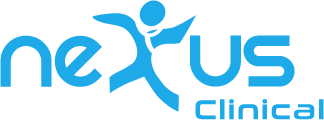
The healthcare industry has undergone a paradigm shift in recent years with the advent of digital technologies, especially in the area of practice management. The traditional healthcare system has faced many challenges, such as administrative inefficiencies, reduced productivity, and high error rates.
However, medical practices today can leverage technology to streamline workflows, improve communication, and enhance patient experience. In this blog post, we will explore how Electronic Health Records (EHR) software, Electronic Medical Record (EMR) solutions, and other practice management tools are transforming the healthcare landscape.
Nexus Clinical has pioneered the most efficient EHR and Practice Management software for the best operational efficiency.
Let’s find out the best practices and the future scope of efficient practice management.
The Role of EHR Software in Practice Management
EHR software is a vital component of modern practice management. It is used to manage patient data, store medical records, and automate administrative tasks.
EHR software reduces the time spent on administrative work, freeing up medical staff to focus on patient care. It also improves billing processes, reduces errors, and enhances compliance with regulatory requirements.
Moreover, EHR solutions integrate with other tools, such as telehealth software, patient portals, and analytics tools, to deliver a seamless patient experience.
Benefits of Electronic Medical Record (EMR) Solutions
EMR solutions are designed to enable healthcare providers to access and manage patient data easily. They help to improve care quality, patient outcomes, and operational efficiency.
Visit documentation is now done in very less time. EMRs are essential tools for modern medical practices to deliver timely, accurate, and personalized care. Some of the benefits of EMR solutions include:
- Easy access to patient information
- Improved care coordination
- Efficient documentation of clinical encounters
- Enhanced communication among healthcare providers
- Improved medication management
- Increased patient engagement
- Better patient experience and easy intake
- Easy visit documentation
Leveraging Practice Management Tools to Improve Productivity
The use of practice management tools can help to improve the overall productivity of medical practices. Practice management tools automate many administrative tasks, such as appointment scheduling, billing, and claims management.
They also improve communication among staff members, reducing the time spent on manual tasks. This can help to improve patient satisfaction, staff productivity, and overall practice performance.
The Future of Practice Management in Healthcare
The future of practice management in healthcare will be shaped by several trends, including artificial intelligence (AI), data analytics, and telehealth. AI will enable the automation of complex tasks such as diagnosis and treatment planning.
Data analytics will help medical practices to leverage big data to improve care quality, patient outcomes, and operational efficiency.
Telehealth will enable remote care delivery, making it easier for patients to access healthcare services.
Moreover, the integration of Electronic Health Records (EHR) systems will continue to play a critical role in streamlining administrative tasks and enhancing patient care. EHRs like Nexus will provide a comprehensive view of a patient’s health history, leading to more informed decision-making and personalized care.
In addition, blockchain technology is poised to revolutionize practice management by providing secure, transparent, and efficient ways to manage health records and transactions.
Lastly, patient engagement tools such as portals, kiosks, and satisfaction surveys will become even more essential. These tools empower patients, enabling them to take an active role in their healthcare, which can lead to improved health outcomes.
In essence, the future of practice management in healthcare will be driven by technological advancements and a patient-centric approach, aiming to deliver high-quality, efficient, and personalized care.
Conclusion:
In conclusion, modern medical practices need to embrace technology to remain competitive, efficient and provide the best care possible. EHR / EMR solutions, and practice management tools are essential tools for modern medical practices to deliver timely, accurate, and personalized care.
They streamline workflows, improve communication, enhance patient experience, and boost productivity. Leveraging these technologies will help medical practices to stay ahead in the ever-changing healthcare landscape and enrich the lives of patients.






